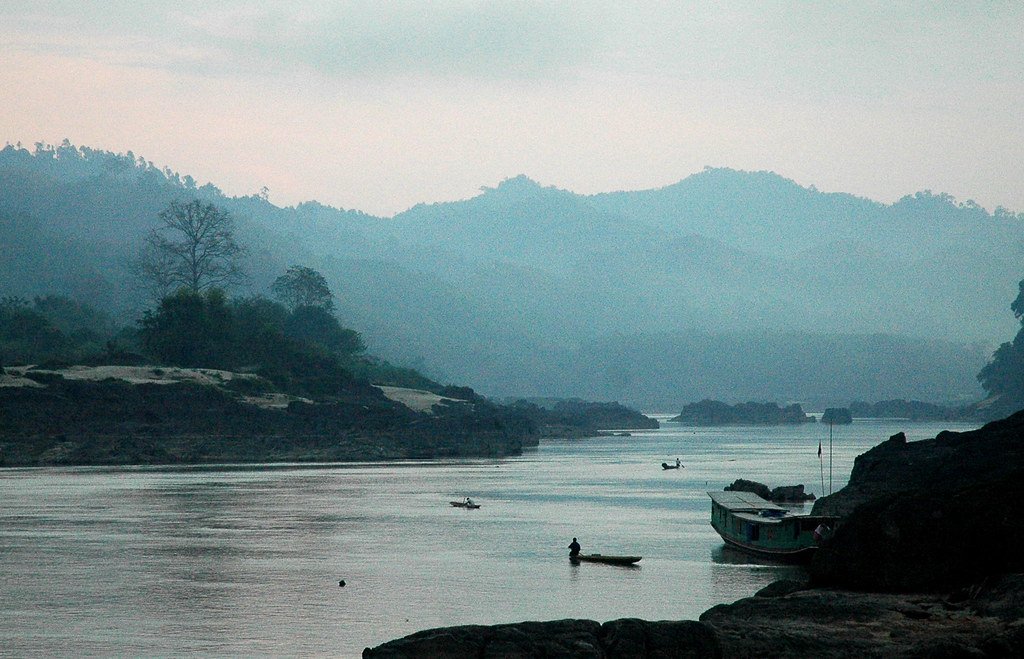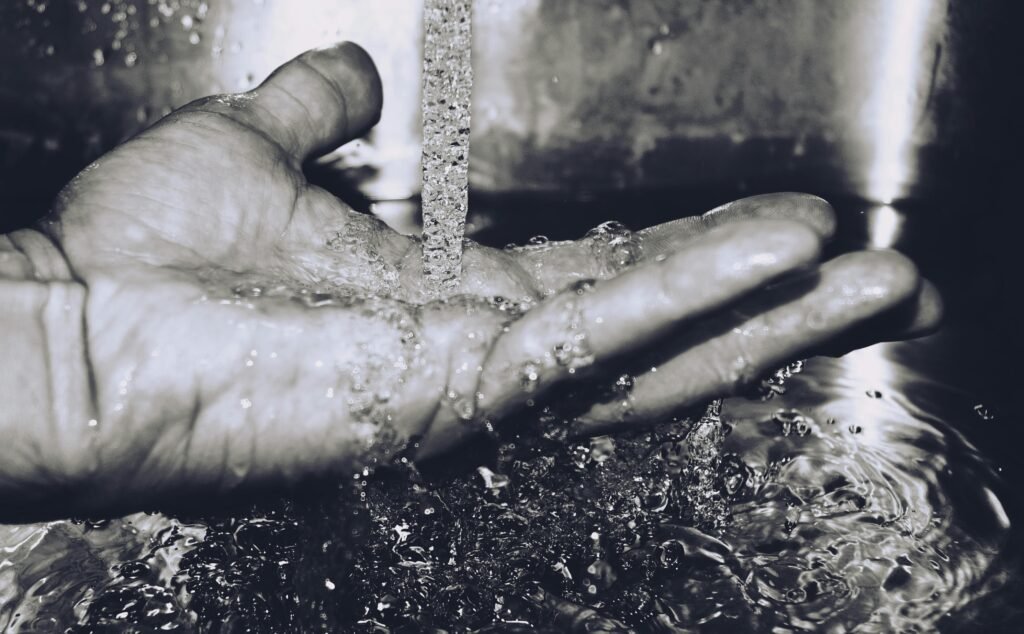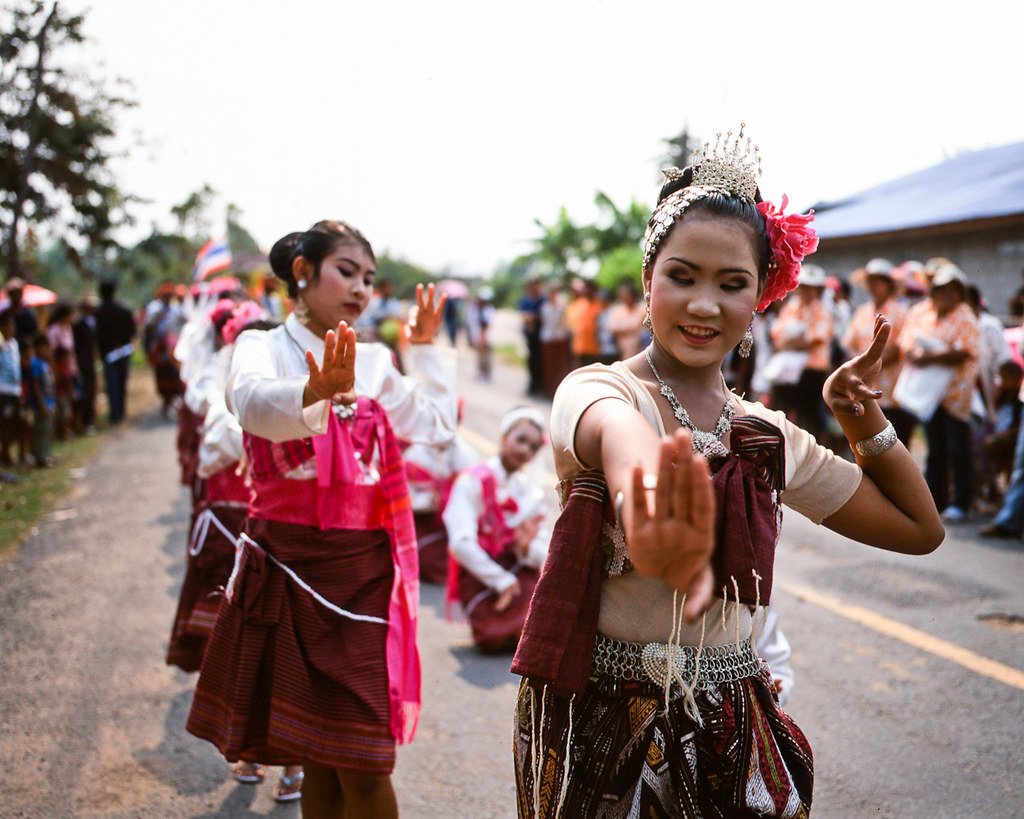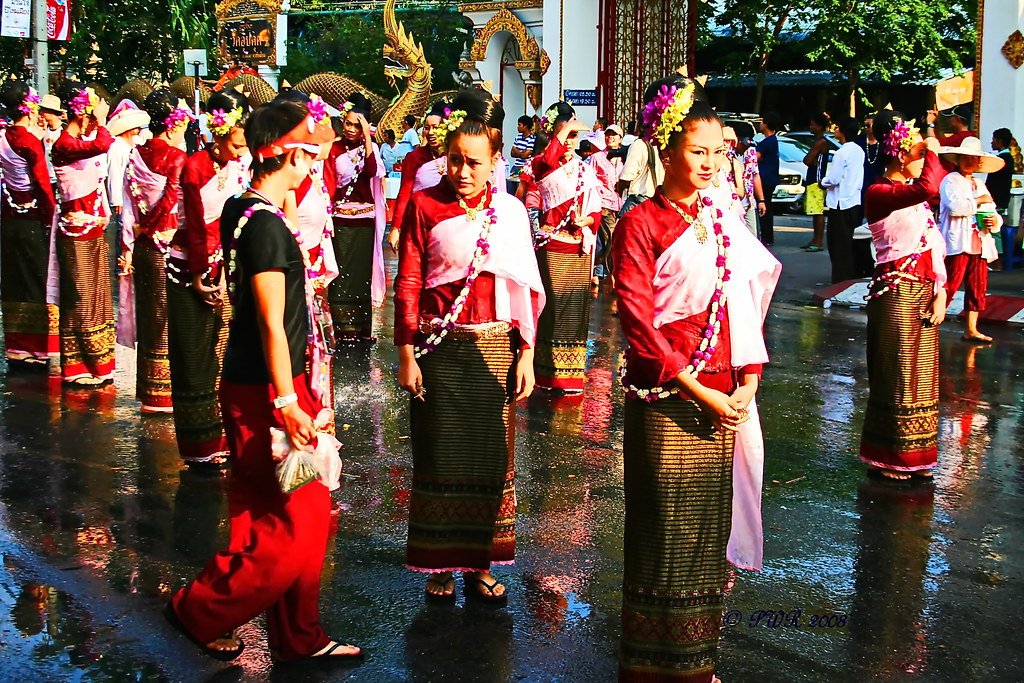For three days every April, droves of people celebrate water festivals like the Songkran, Thingyan, and Chaul Chnam Thmey, taking to the streets and splashing buckets of water on each other.
These lively festivities are deeply rooted in the cultural traditions of the Mekong region, where water is believed to wash away negativity in time for the Buddhist New Year. The Songkran festival was even recognized as an Intangible Cultural Heritage of Humanity by the United Nations Educational, Scientific and Cultural Organisation (UNESCO) in 2023.
As these festivals have grown in popularity, they also brought to surface environmental issues. Water resources are needlessly used up, contributing to existing water conflicts and droughts. This year’s dry season is projected to bring severe drought to the Mekong Delta, as if the Mekong region hasn’t had enough—mainland Southeast Asia entered its fourth consecutive year of drought in 2022.
This begs the question: is there a way to celebrate these culturally and economically significant festivals in a sustainable way? The answer lies in a multi-stakeholder approach that engages festivalgoers, local businesses, and policymakers alike.

What businesses can do
Businesses, especially those in the hospitality and tourism sectors, have a critical role to play in making water festivals sustainable. Here are key strategies that hotels, tour operators, and festival organizers can take–according to experts.
Offset water usage.
Allocate funds towards initiatives that help offset water use during festivals like the Songkran. For instance, a small ‘water conservation fee’ can be charged for every liter of water used by festival attendees. The funds collected from this fee can then be allocated towards important water conservation initiatives, such as reforestation projects to replenish watersheds, programs to protect critical water sources, or efforts to purify and treat water supplies.
“Collaborate with government agencies and NGOs to develop a system where tourists’ water consumption is tracked upon entry to festival areas. Based on this data, a corresponding amount of water can be allocated for conservation efforts,” Andrian Dwi Kurniawan, the CEO of Bali-based sustainable hospitality startup, Senang Eco Services advices.
Lean into cultural heritage.
Promote lesser-known cultural experiences that need little to no water. Encourage tourists to see unique traditional dances or visit temples and pour water over the hands of monks to receive blessings. By reviving these time-honored traditions, it’s possible to retain the cultural essence of the celebrations while taking meaningful steps toward environmental sustainability.
The Phuket Hotels Association, for instance, distributed guidelines among members to focus on promoting Songkran history and cultural traditions like traditional sprinkling and water blessing activities. Jayne MacDougall, their Executive Director, explains in an Asia Sustainable Travel playbook, “By sharing the cultural significance of these rituals, we aim to deepen guests’ appreciation for the festival’s roots.”
Promote direct conservation efforts.
Raise awareness about sustainable water play practices such as using recycled water or spray bottles. Rather than open-ended water fights, hype up fun pool activities that celebrate water already available. Minimize the use of open taps for spraying vehicles or passersby. Businesses can even promote water guns with fixed containers for filling versus unrestricted flow mechanisms. It’s important to promote these little practices so the situation doesn’t worsen.
In 2016, more drastic measures were taken to conserve local resources. Water splashing activities in 50 districts in Thailand were limited to 9:00 pm at the latest. These official measures came at a time when the country experienced a severe drought that depleted major reservoirs.

What policymakers can do
As with local businesses, policymakers have a vital part to play in making water festivals like the Chaul Chnam Thmey and Thingyan sustainable. Here’s how government can enable and regulate water-friendly festivals.
Implement water recycling systems.
Treat and reuse wastewater for festival activities instead of relying on freshwater sources. By implementing water recycling systems, the strain on local freshwater supplies can be significantly reduced during these major water festivals.
Adrian tells Diinsider Life, “Tourist areas can be equipped with water treatment facilities that collect, treat, and recirculate water used during the festival.” However, he also acknowledges that festival locations may lack the necessary infrastructure for water recycling and treatment. This is definitely a long-term strategy that requires larger investments and proper siting.
Introduce financial incentives for water conservation.
Policymakers can charge tourists a nominal fee to enter festival areas, with the funds channeled directly into conservation initiatives. Government regulations would be necessary to enforce these charges and ensure appropriate allocation of the funds.
“NGOs and start-ups specializing in environmental conservation can partner with local authorities to identify priority areas for water conservation and implement projects using the funds generated from these fees,” Adrian shares to Diinsider Life.
Facilitate community-driven sustainable water management.
Andrian urges policymakers to look to community stewardship models like the Subak system in Bali, where local communities collaboratively manage irrigation facilities like water temples, irrigation channels, and reservoirs. Their cooperative efforts ensure effective water distribution to farmers’ fields.
“By involving stakeholders at the grassroots level, such as residents, businesses, and cultural organizations, a sense of ownership and collective responsibility can be fostered, leading to more effective water conservation efforts.”

What tourists can do
While institutions have a larger impact and role to play in water conservation, tourists also have a responsibility to be mindful of their water use.
Conserve water.
Tourists can move away from drenching others with water guns and instead opt for more sustainable practices like mist sprayers or sprinkling. The mist spray may inspire laughter, but it requires a significantly smaller amount of water, reminding us of the modest water needs of traditional rituals like pouring water over Buddha statues or the palms of elders’ hands.
However, Andrian admits, “Encouraging festival participants to adopt water-saving behaviors can be difficult due to deeply ingrained cultural practices that involve extensive water usage.”
Since this can be a difficult switch, festivalgoers can start by setting limits such as only using one cartridge of water instead of two or only participating in the water fights for an hour instead of six.
Educate yourself.
A tourist attending Songkran tells Bangkok Post, “I had no idea about the drought to be honest. I don’t really have any plans to save water. I’ve been to Songkran before and everyone is just throwing water everywhere,” he said.
Many tourists remain unaware of the broader context beyond the festival, such as droughts and water conflicts impacting the local community. Take the time to understand these pressing challenges and adjust water usage accordingly.
On that note, it also helps to cultivate a deeper connection to these water festivals. One can learn about its history and culture by participating in educational tours and cultural practices beyond the water fights, for example.
Future-Proofing Water Festivals in Mekong
The path forward lies in a collective effort that brings together all stakeholders – businesses, policymakers, tourists, and local communities. By harnessing the spirit of these festivals to drive water conservation and cultural preservation, we can find innovative ways to uphold the timeless rituals while adapting to modern realities.
Only through this collaborative, multi-stakeholder approach can we ensure the water festivals of the Mekong region continue to bring joy and community for generations to come. The time to act is now, as we work together to preserve the essence of these cherished traditions while safeguarding the environmental resources that underpin them. The future of these vibrant celebrations depends on our collective commitment to sustainability today.

